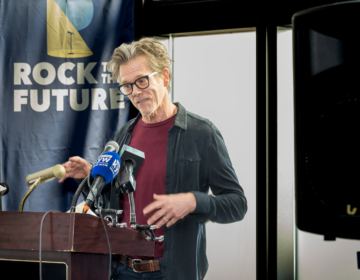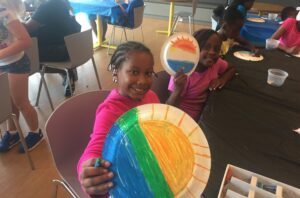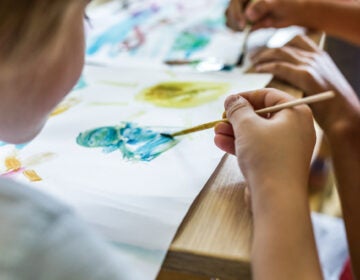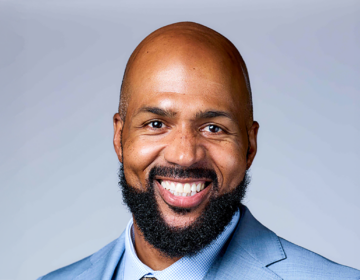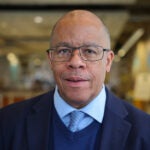Lang Lang Foundation brings piano lessons to elementary students in 10 Philadelphia schools
Thanks to the renowned concert pianist's foundations Philly second- and third-graders are discovering the piano.
Listen 1:19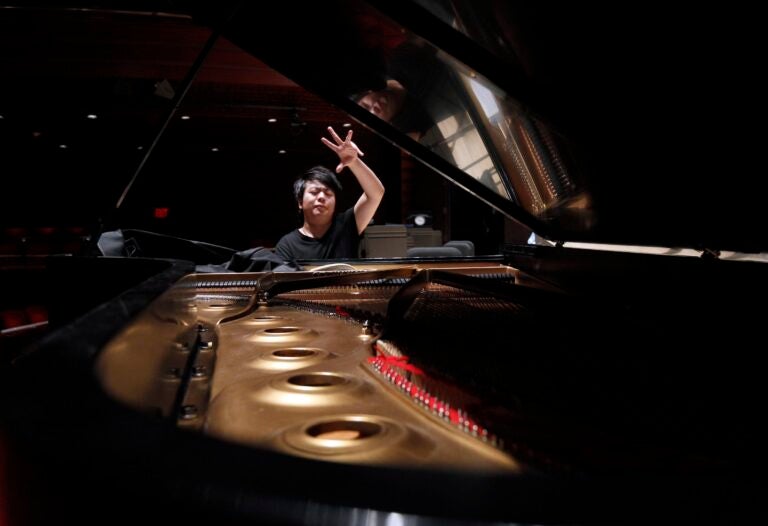
FIle - Pianist Lang Lang rehearses with chief conductor Charles Dutoit and the Philadelphia Orchestra Wednesday, Oct. 19, 2011 in Philadelphia. (AP Photo/Alex Brandon)
From Philly and the Pa. suburbs to South Jersey and Delaware, what would you like WHYY News to cover? Let us know!
Acclaimed worldwide for his classical piano performances, Lang Lang discovered his passion for the instrument as a toddler. It’s hardly surprising, then, that the foundation bearing his name is now teaching piano to second- and third-grade students at 10 Philadelphia schools.
Born to musically inclined parents, Lang Lang made his first public recital appearance at age five, according to his biography. A native of Shenyang, China, he has performed with premier orchestras around the world and moved to the city in 1997 to study at the Curtis Institute of Music in Philadelphia.
Locally, his Keys of Inspiration program is offered at Thomas Holmes Elementary, Francis Scott Key Elementary, Fox Chase Elementary, Southwark Elementary, Thomas Mifflin Elementary, Northeast Community Propel Academy, Jay Hampton Moore Elementary, and Edward T. Steele Elementary.
Lukas Barwinski Brown, CEO of the Lang Lang International Music Foundation, said that approximately 5,000 Philadelphia students currently participate in Keys of Inspiration. Brown explained, “The program is integrated into the curriculum of every school. ” It uses music to enhance English, math, and science instruction and was created 11 years ago in Boston.
In Philadelphia, the foundation intends to expand the program by two more grades each year until all students have the chance to participate. Keys of Inspiration now operates in 100 public schools throughout the U.S., as well as 150 schools in China and five in London.
According to Brown, “Depending on the size of the class 25-to-35, [students] we are bringing high-quality, state-of-[the]-art keyboards. Every student has headphones and practically the entire class can learn how to play and how to read music at the same time.” While the foundation invests about $50,000 per school for the equipment, the district provides the teacher and the space.
Brown also noted that student progress reports and teacher workshops suggest participants are improving in English, math, and science. Many students, inspired by learning the piano, branch out to other instruments such as drums, guitar, or violin. Others become so enamored with the keyboard that some are gifted one, which they continue to play at home.
“I believe that by teaching them music they are better prepared for academic life,” Brown said. “The children are provided a safe space to learn music and express themselves. We want to build communities. Every child is supposed to have access to music. Children who are exposed to music at an early age, their brain evolves.”
Research supports this perspective. A January 2022 feature in USC Today, authored by University of Southern California researchers, concluded that music education bolsters creativity, mental health, and academic achievement, and can also enhance wellbeing and self-esteem. However, a 2022 study by the Arts Education Data Project revealed that more than 3.5 million students—often in underserved areas—lack any access to music education.
Initially, Brown created a piano lab with assistance from Roland Piano Keyboards. This year, though, the Lang Lang Foundation will partner with The ONE Music Group, which developed a smart keyboard that leverages new technology to accelerate students’ progress.
“Every keyboard has a screen and software that is children-friendly with cartoon characters,” Brown said. “The kids are learning by playing. The teacher has a station that can switch from student to student and monitor their progress.”
“Lang Lang’s perfection in his piano-playing craft, dedication to learning in his youth, is the kind of quality we want to exude for our piano,” said Sandy Diao, head of growth at The ONE Smart Piano, in a statement.
TIME magazine named Lang Lang one of its 100 Most Influential People in 2009. “Music education of the future is what’s needed to help kids find their love for playing piano and allow them to grow their potential in music,” he said.
Brown added, “Philadelphia is a very special place for us because it is very open to the program and very supportive. Not every city, not every state is like this. Some cities don’t want it. They are not interested. Philadelphia is exactly the opposite. Philadelphia is very eager, very collaborative and very supportive.”
Editor’s Note: This story is part of a series that explores the impact of creativity on student learning and success. WHYY and this series are supported by the Marrazzo Family Foundation, a foundation focused on fostering creativity in Philadelphia youth, which is led by Ellie and Jeff Marrazzo. WHYY News produces independent, fact-based news content for audiences in Greater Philadelphia, Delaware and South Jersey.

Get daily updates from WHYY News!
WHYY is your source for fact-based, in-depth journalism and information. As a nonprofit organization, we rely on financial support from readers like you. Please give today.


